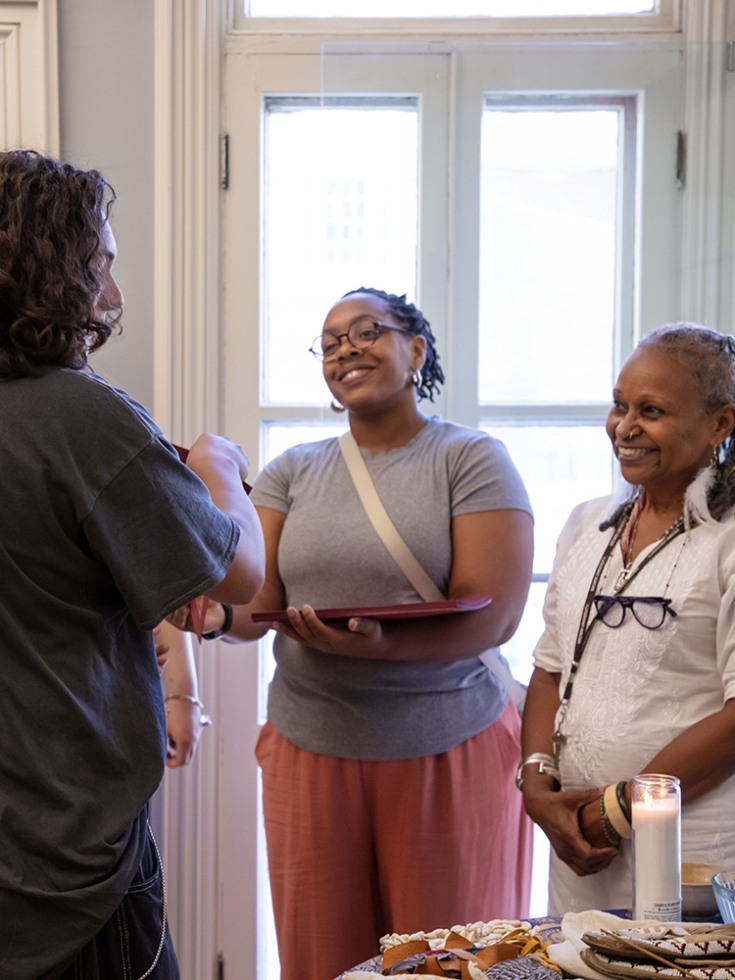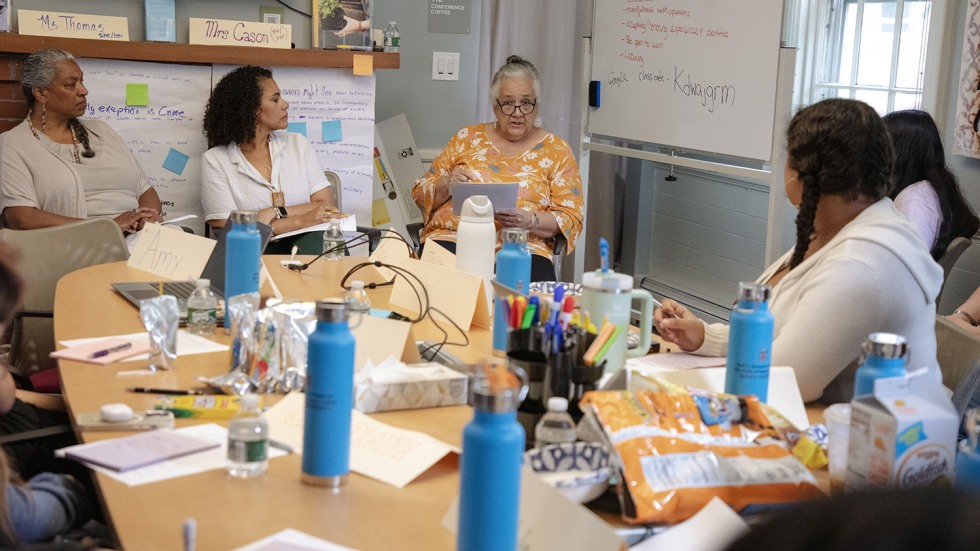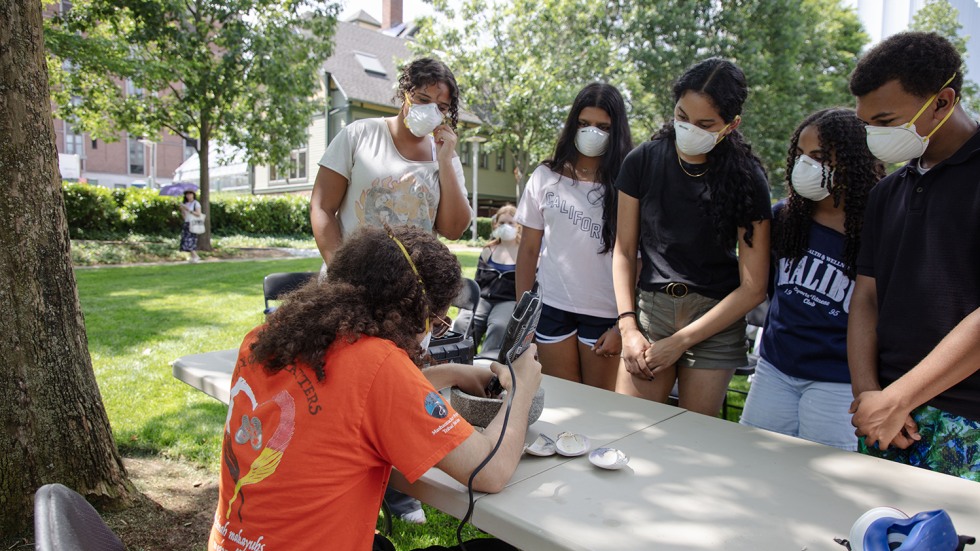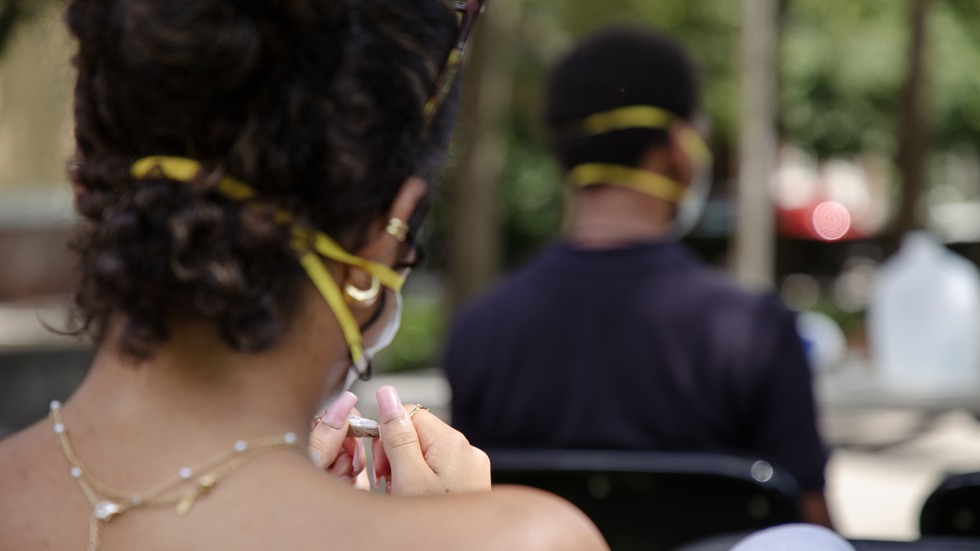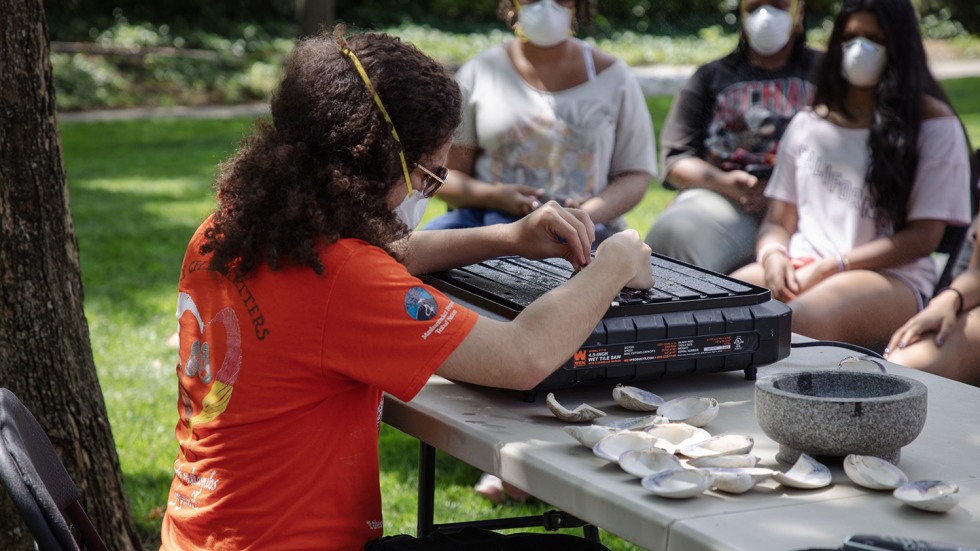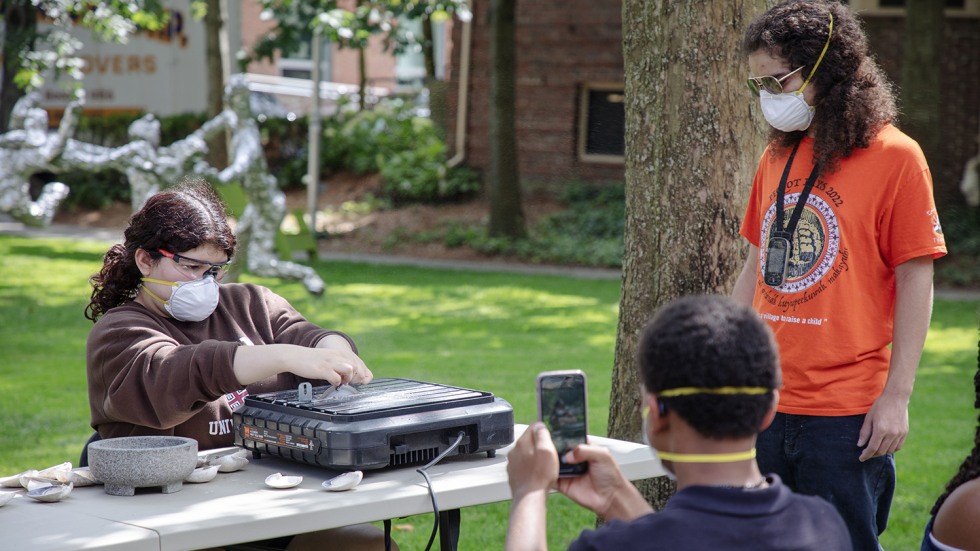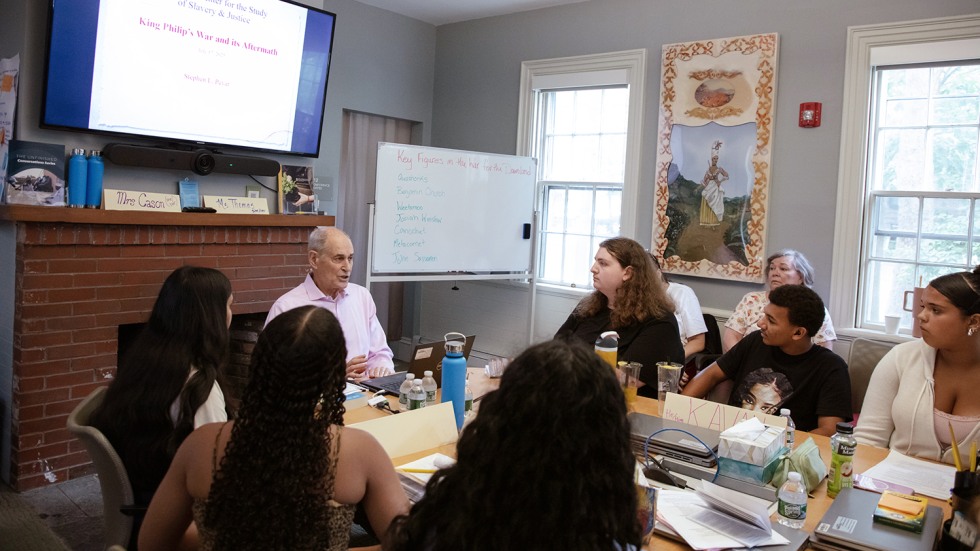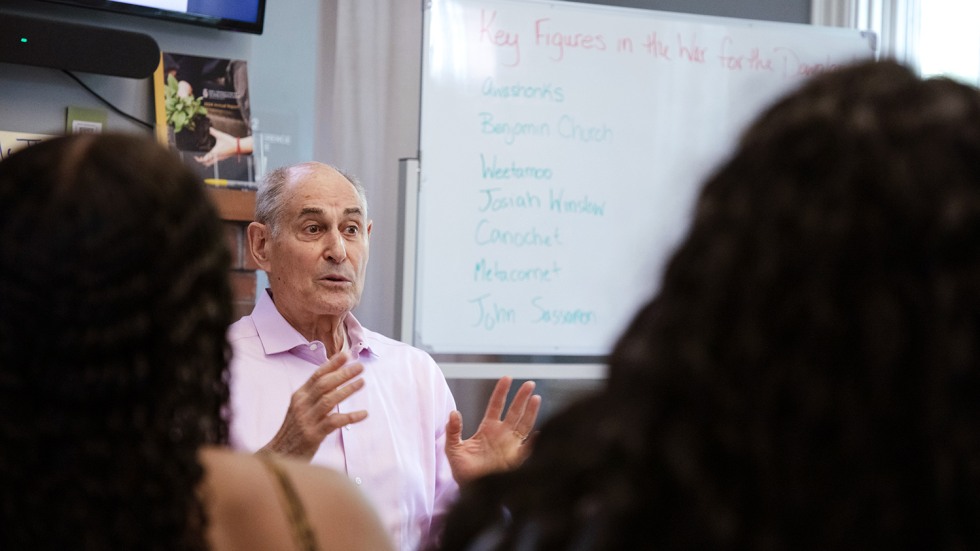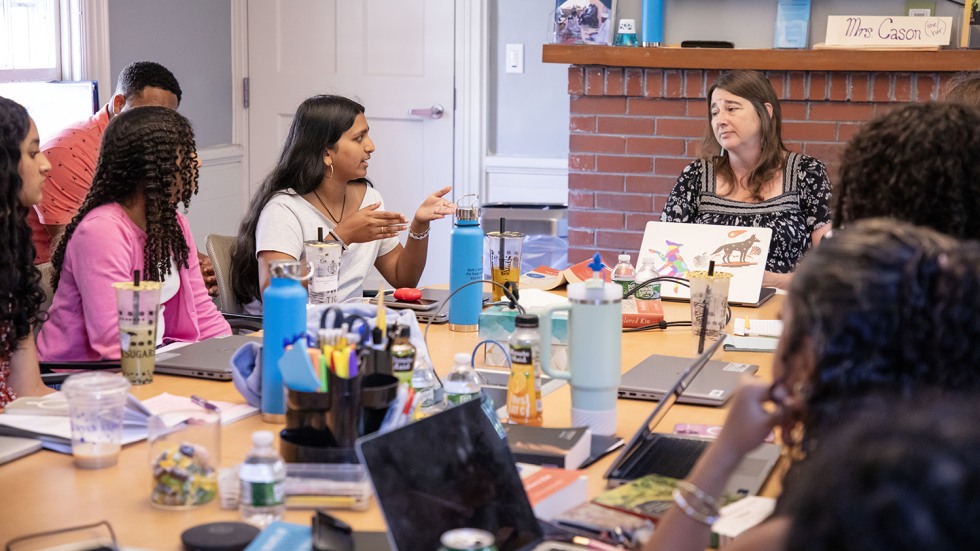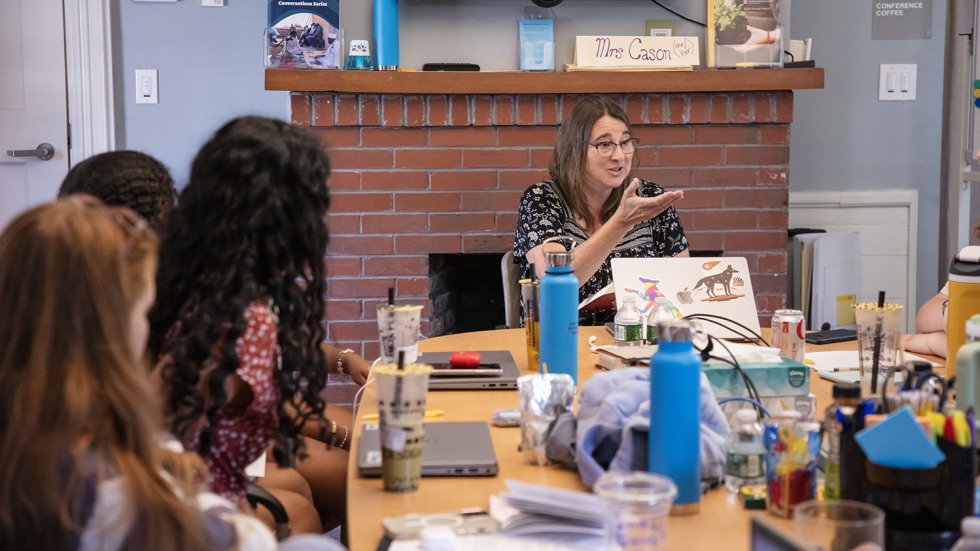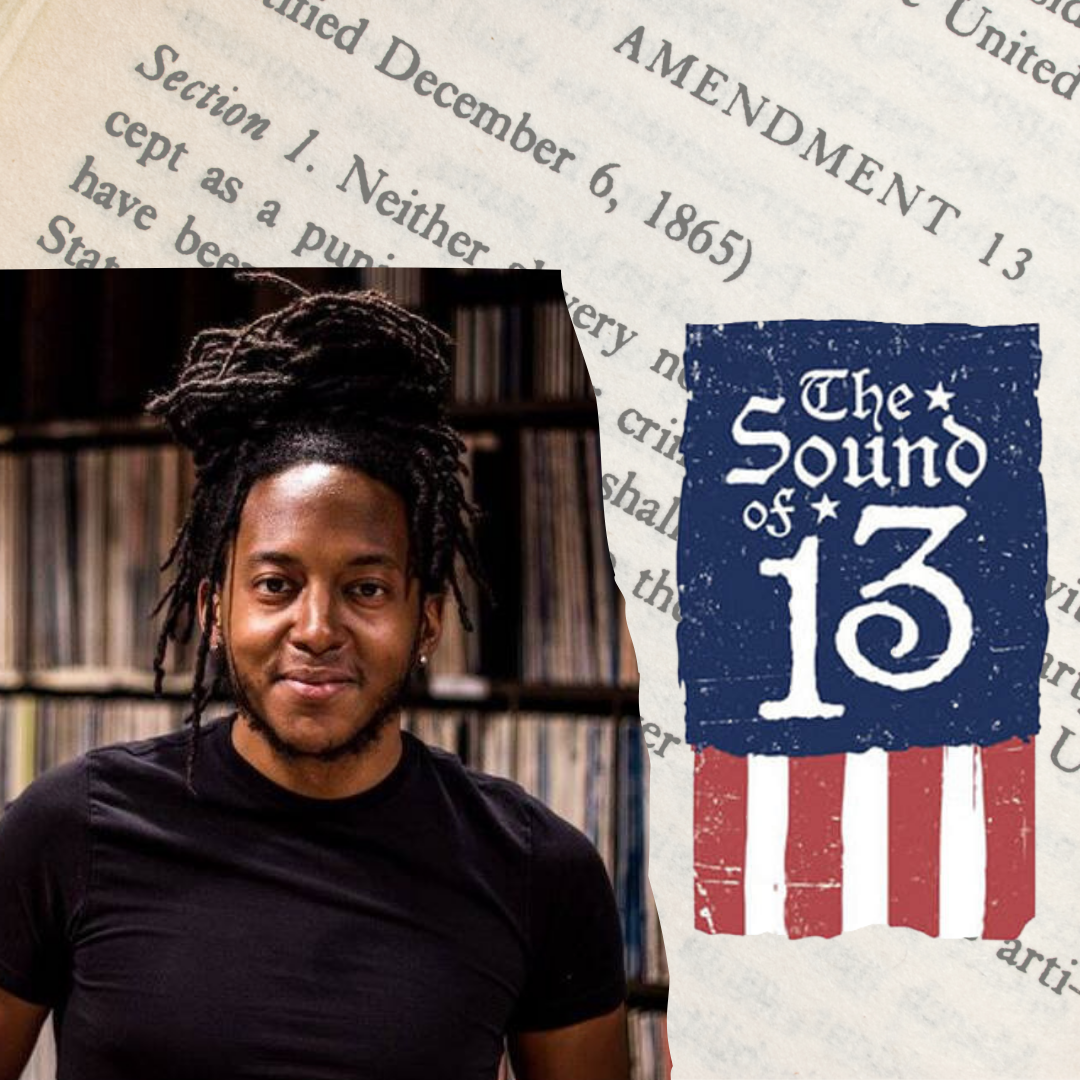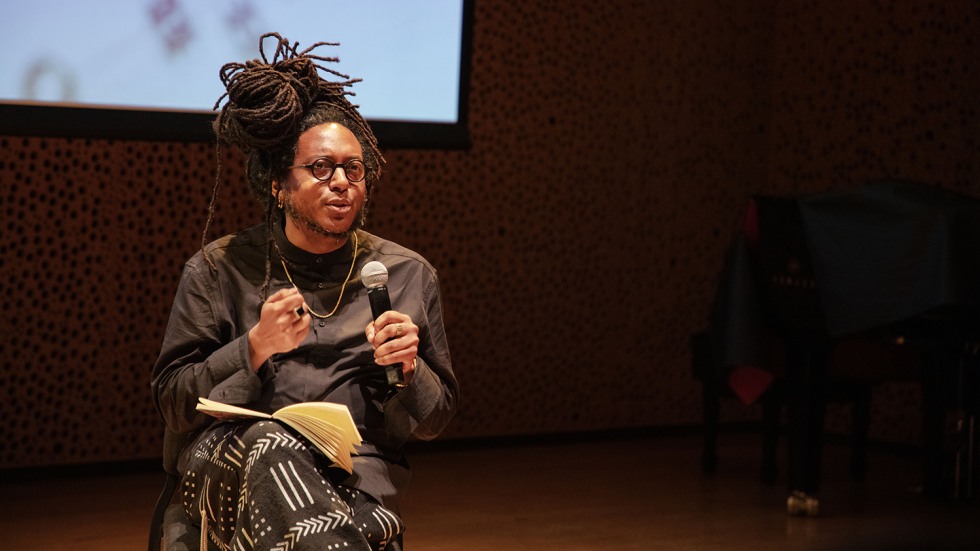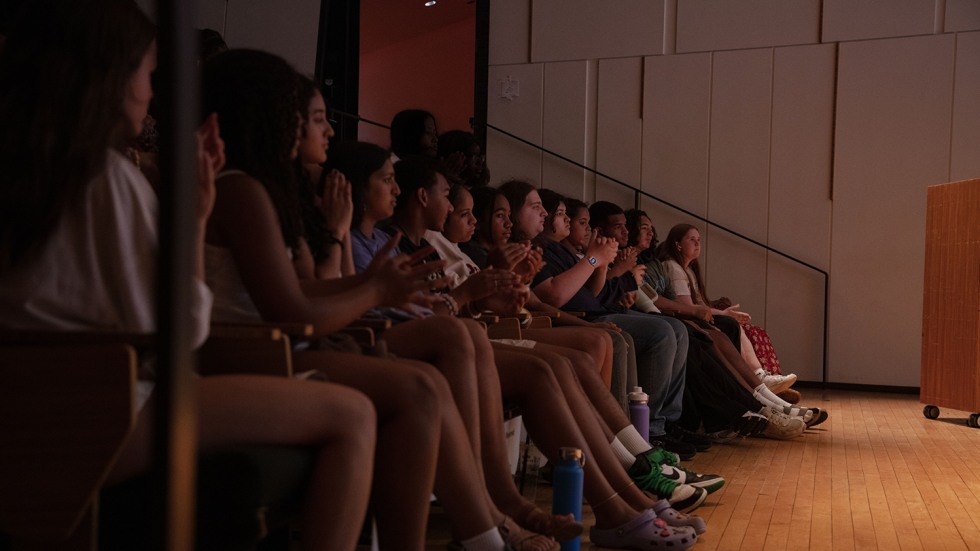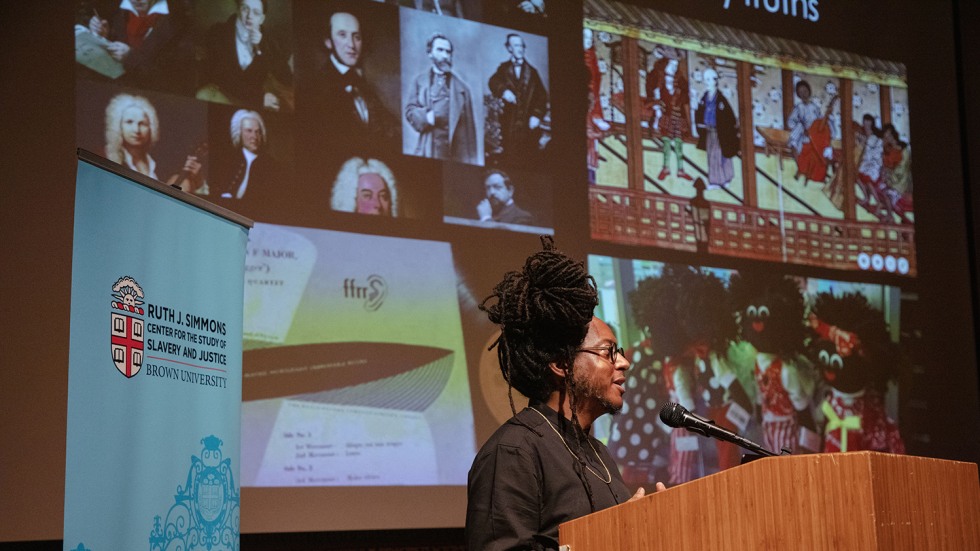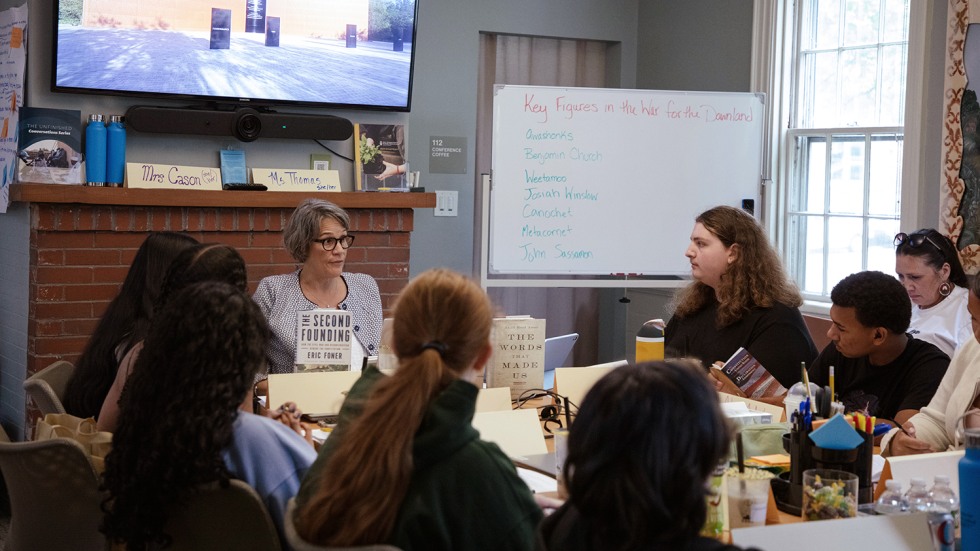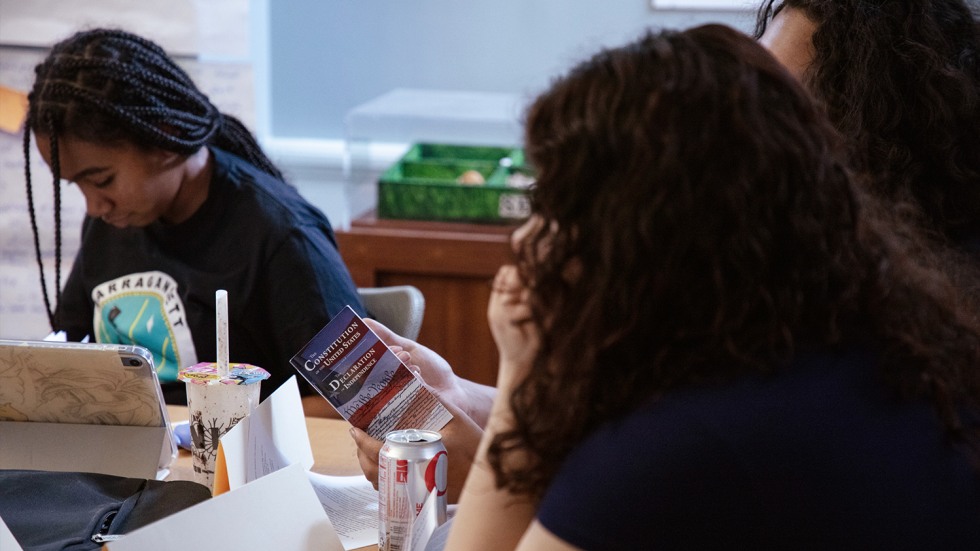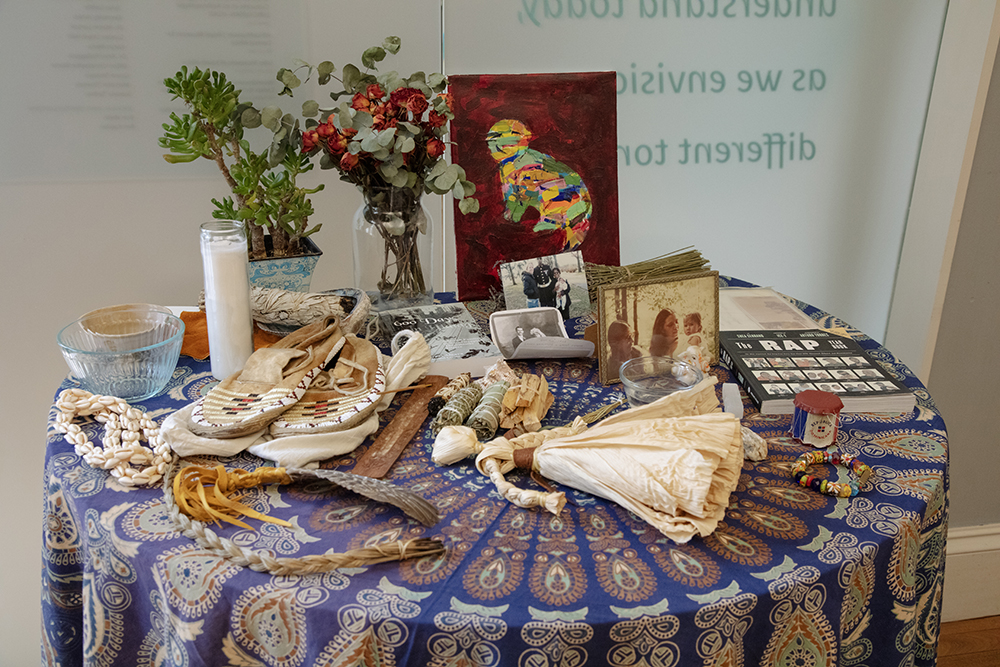
The Ruth J. Simmons Center for the Study of Slavery & Justice and the Native American and Indigenous Studies Initiative (NAISI) at Brown University, along with our partners at the Tomaquag Museum, returned to hosting our free 5-day program, the Black & Indigenous Histories Summer Institute (BIHSI). The program is for rising 9th-grade to graduating 12th-graders of Rhode Island who are interested in learning more about local histories, specifically those of Black and Indigenous peoples.
We were able to welcome 15 students from across the state who took three courses during the morning half of their days and heard from guest speakers in the afternoons. Their first course of the day was “Black History in the Dawnland,” which this year focused on the 13th Amendment to commemorate the 160th anniversary of its passage. It was taught by the Simmons Center’s Manager of Public Education Initiatives and Community Outreach, Reina Thomas. In this course, students connected with scholars and artists such as Dr. Alaina E. Roberts, Loki Karuna, and Justice Melissa Long.
The second course, "The War for the Dawnland," focused on King Philip’s War and was taught by Assistant Director of NAISI, Wunneanatsu Lamb-Cason. Despite King Philip’s War being the most significant war to take place in the region we now call New England, it is often forgotten by non-Indigenous peoples. With the 250th anniversary of the American Revolution taking center stage in upcoming national events, we decided to shine a light on a war that happened 100 years earlier. While taking this course, students learned from scholars and culture bearers such as Linda Coombs, Chrystal Mars Baker, Kim Toney, Stone Thomas, Stephen Pevar, and Lisa Brooks.
Following each of these classes, students took a meditation course where they reflected on the material they had just engaged with and also checked in with how their bodies were responding to these often traumatic histories, releasing what they needed to within that space. This course was led by Abigail Jefferson, one of the educators from our Teach-In series. Jefferson also opened and closed the summer program with our community altar. For the community altar, each participant, including faculty, were asked to bring something meaningful that ties them to their ancestors, roots, histories and family.
